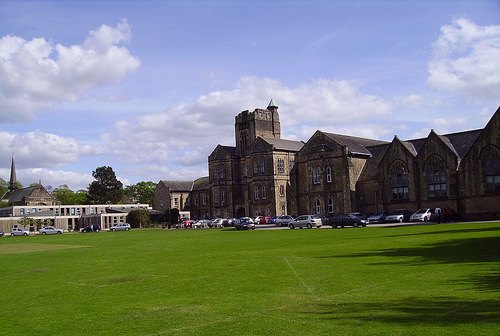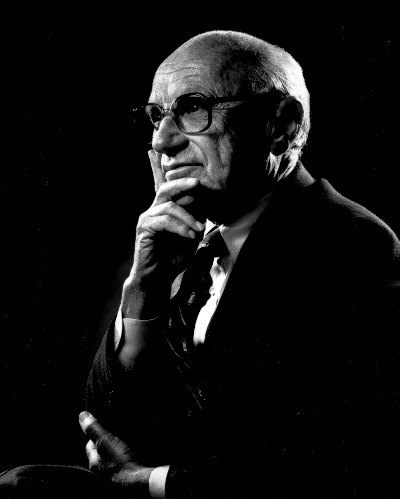|
|
|||||||||||||||||||||||||||||||
|
The Impact of Disaster Capitalism on England's Education System
The Commodification of Education
By Pernel Fisher - 2008. In today’s England, governmental bodies and non – profit organisations are responsible for the administration of education which is by far and large paid for by students. This situation has developed gradually and is now taken so much for granted that little attention is given to this phenomenon which was previously a public service provided by the government through the taxes paid by the populace. The election of the Labour Government headed by Prime Minister Tony Blair, on the 1st May 1997 presaged changes to the world of Education in England which few working inside education had anticipated. Blair, describing himself and the politics he represented as the New Labour, declared that the priority for the incoming government would be to make education a top priority. However, the policies he presented on education, showcased a radical departure from the traditional notions of education as a public service, publicly funded and locally administered which had dominated Labour Party thinking since its foundation at the beginning of the twentieth century and more especially since the 1940s. Adam Smith is regarded as the Founder of Economics but arguably his impact did not have the same effect as the policies or theories of an economist named Milton Friedman. Milton Friedman from the famed Chicago School exported his brand of economics the world over to developed industrialized countries and to so called Third World countries. This type of economic ideology is neo-liberalism. Neo-liberalism is defined as a liberal who de-emphasizes traditional liberal doctrines in order to seek progress by more pragmatic methods. You might be wondering how disaster capitalism comes into play since it is highlighted in the title of this article. This term was coined by Journalist, Author and Activist Naomi Klein to show how America’s free market policies or the neoliberal policies, through the economic theories postulated by Milton Friedman have come to dominate the world over
In England the disaster capitalism which Naomi Klein wrote took many forms, one such form is the 1988 Education Reform Act, this brought about a dual strategy of increased marketisation which entailed a reduction in the powers of the school based management and an centralised control mechanism in the form national curriculum national or standard tests for ages, 7, 11, and 14. Along with this came a new and punitive inspection regime with responsibility going to the Office for Standards in Education. The laissez-faire ideology by Milton Friedman is in vogue with the introduction of Education Reform Act, laissez-faire is generally understood to be a doctrine that maintains that, private initiative and production are best allowed to roam free, opposing economic interventionism and taxation by the state beyond that which is perceived to be necessary to maintain individual liberty, peace, security, and property rights. Education which used to be a public service in England took on a different approach. It is now positioned as a service under the New Labour. The commodification of education meant that, education needs to be more competitive to meet the labour, schools should compete for parents’ money and the performance indicators will aid in the decision of the level of funding the is allocated to each school. This can be likened to the Standard Testing use in high schools in Ontario. This is another of the pillars of Milton Friedman’s ideology, free market with competition being the activity which determines the allocation of resources. The school system was divided into three distinct groups. The labour government introduced a policy called “choice and diversity” whereby the comprehensive schools were converted to specialist schools. The reasoning behind this policy was the creation of diversed school which would correspond to the different needs of the students. The move to convert was voluntary but if you complied you would be rewarded financially. The first group is classified as a specialist school which has a weak form of sponsorship. School wishing to gain this status must first obtain $50,000 of external sponsorship. Foundation schools are the next category. When schools are accorded this status, it comes with increased automony. This means that that they own their assets, they administer their own hiring policy and also have the rights to set their own admission policy. The final category of sponsorship of schools by companies, religious and charitable organisations is called Academies. Academies are publicly funded schools, mainly the newly build and most times are housed in socially deprived areas. Neo-liberalism undermines teacher professionalism. It places practically, morally and ideologically the development of capital and markets above that of teacher autonomy and professionalism. The restless restructurings of schools and the schools system, the changes of roles and responsibilities, the policy fever and all the rest pursued under the neoliberal banner continually disrupt, undermine and reconfigure claims to teacher professionalism, and its social substance. 
|
|
||||||||||||||||||||||||||||||
|
Website Design + SEO by designSEO.ca ~ Owned + Edited by Suzanne MacNevin | |||||||||||||||||||||||||||||||

